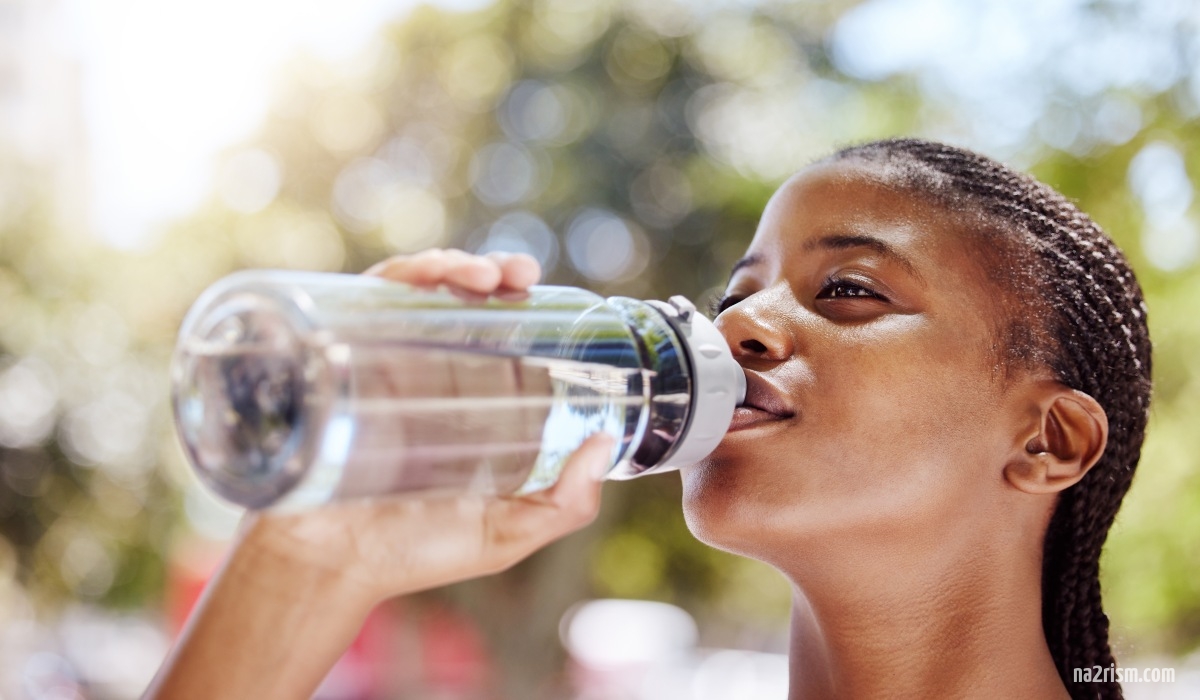When spending time at the beach in summer, it’s important to stay hydrated to prevent dehydration, heat stroke, and other heat-related illnesses. But how much water should you drink? Here are some factors to consider:
- Activity level: The amount of water you need to drink depends on how active you are. If you’re swimming, playing beach volleyball, or engaging in other physical activities, you’ll need to drink more water than if you’re just lounging in the sun.
- Heat and humidity: When it’s hot and humid outside, you’ll need to drink more water to stay hydrated. The body loses water more quickly in these conditions, so it’s important to replenish fluids more frequently.
- Body size: Larger individuals generally require more water than smaller individuals to stay hydrated.
- Medical conditions: Certain medical conditions, such as diabetes or kidney disease, may require you to drink more or less water than the average person. It’s important to speak with your doctor about how much water you should be drinking.
With these factors in mind, the general rule of thumb is to drink at least 8 glasses of water per day. However, when spending time at the beach in summer, you may need to drink even more water to stay properly hydrated. Here are some tips to help you stay hydrated at the beach:
- Drink water regularly: Don’t wait until you’re thirsty to drink water. By the time you feel thirsty, your body is already dehydrated. Instead, drink water regularly throughout the day.
- Bring a reusable water bottle: Bring a reusable water bottle with you to the beach and fill it up frequently. This will help you keep track of how much water you’re drinking and reduce your environmental impact.
- Eat water-rich foods: Eating water-rich foods like watermelon, cucumbers, and strawberries can also help you stay hydrated.
- Avoid sugary drinks: Sugary drinks like soda and juice can actually dehydrate you, so it’s best to avoid them when you’re at the beach.
- Consider electrolyte drinks: If you’re engaging in a lot of physical activity at the beach, you may also want to consider drinking electrolyte drinks like Gatorade or coconut water to help replenish lost electrolytes.
- Be mindful of alcohol consumption: Drinking alcohol at the beach can be tempting, but it’s important to be mindful of its dehydrating effects. Alcohol can increase urine production and contribute to dehydration, so it’s best to limit your intake or avoid it altogether.
- Seek shade: Spending time in the sun can also contribute to dehydration. Seek shade under an umbrella or canopy, especially during the hottest parts of the day.
- Wear appropriate clothing: Wearing loose-fitting, breathable clothing can also help keep you cool and reduce the risk of dehydration. Opt for light-colored clothing that reflects the sun’s rays rather than absorbing them.
- Monitor your urine color: One way to gauge your hydration levels is to monitor your urine color. If your urine is light yellow or clear, you’re likely adequately hydrated. If it’s dark yellow, it’s a sign that you need to drink more water.
- Be aware of heat-related illnesses: Even with proper hydration, spending time at the beach in summer can still put you at risk for heat-related illnesses like heat exhaustion or heat stroke. Symptoms of these conditions include fatigue, dizziness, nausea, and confusion. If you experience any of these symptoms, seek shade and drink water immediately.
Remember, staying hydrated is important for your health and well-being when spending time at the beach in summer. By drinking enough water, eating water-rich foods, and avoiding sugary drinks, you can enjoy your time at the beach while keeping your body properly hydrated.

